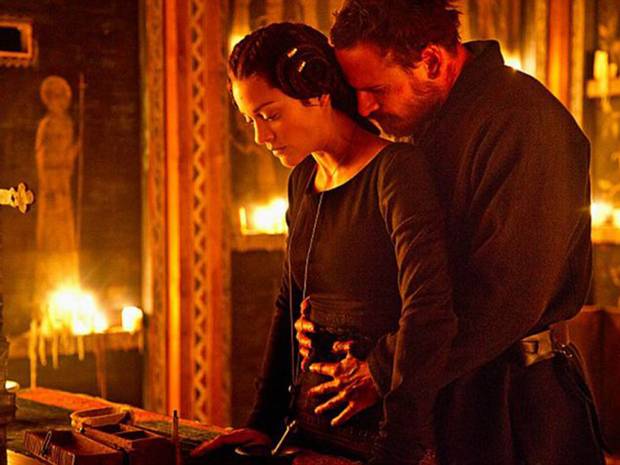
Directed by Justin Kurzel
Written by Todd Louiso, Michael Lesslie and Jacob Koskoff (Based on the play by Shakespeare)
U.K., France, U.S., 2015
There have been countless adaptations of Shakespeare’s Romeo and Juliet and Hamlet, but with the exception of Roman Polanski’s 1971 film, Macbeth has largely gone ignored by cinema. Justin Kurzel, fresh off the success of The Snowtown Murders, may have delivered the definitive take on the Scottish Thane. From the very beginning Kurzel marks that his vision will be different, as the film opens on the funeral of a small child, then transitions to bloody combat. Usually set on the stage, depictions of war in Macbeth are avoided because of budget constraints and available space–a shame considering how influential those scenes prove to be. The violence and trauma of the warring tribes and his child’s death sets the stage for Macbeth’s lust for power later in the film. Blood begets more blood.
In this beleaguered state of mind, a prophecy from three witches becomes the driving force behind his madness. Left with no heirs of his own and a fractured relationship with his own wife, the crown is the only possession that will give Macbeth solace. Murdering the king in cold blood in order to take the throne only makes sense for a man consumed by ambition. Most of the talk regarding Michael Fassbender has been about his excellent performance in Steve Jobs, and while that is a solid piece of acting, it pales in comparison to the mentally scarred Macbeth that Fassbender creates. The first half’s whispers of self-doubt turn into the paranoid ravings of a man who has lost his mind by the film’s end.
Not to be outdone by her co-star, Marion Cotillard’s Lady Macbeth is as conniving as her husband is unraveled. Left bitter about the death of her children, her cunning seduction
of her husband to to end the bloodlines of his competitors is absolutely Machiavellian. Now, a Lady Macbeth that is only presently evil is uninteresting- however, Cotillard dabbles in the despair with just as much conviction. A lot of actresses might be exposed by an unbroken close-up, but Cotillard relishes the spotlight of the infamous “Out, damned spot!” scene.

If this sounds like it may be a tough watch, it is. Make no mistake, this is certainly the grimmest interpretation of the Scottish play, but a true artistic vision unencumbered by the need to make it for everyone is something to be celebrated in today’s film market. Justin Kurzel manages the difficult task of being having to be faithful to the source material, while also offering new insights into a character that’s been around for centuries. Too often directors adapting stage plays let the prestige of the material overwhelm them, and leave out any stylistic choices. While Kurzel does set the film in the Highlands (and goes as far to accurately research the tribal colors for the soldiers’ face paint and kilts) for authenticity, he resists that urge to go prim and proper in staging the story.
The director, along with cinematographer Adam Arkapaw, shoots the film in a deliberate horror style, utilizing yellows and grays to display the sickness inherent not only to the Lord and Lady Macbeth, but the hell present all around them. These are storytelling choices determined to set this Macbeth apart from the others, but none are as invigorating as the choice to paint the screen crimson for the finale.
Amidst a hugely talented ensemble (featuring David Thewlis, Paddy Considine, Sean Harris, and Elizabeth Debicki) Fassbender and Cotillard stand out for their lived-in performances. There is a long history of storied actors and actresses taking part in Shakespeare’s works, but the sheer intensity Fassbender and Cotillard deliver is unrivaled. Macbeth serves as a reminder that without all the frills of special effects and shared universes, great acting still mesmerizes audiences when given the chance. Don’t miss the chance to catch this in theatres.


